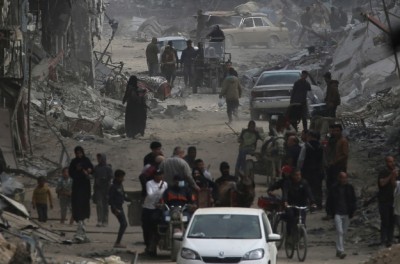The UN’s World Heritage Committee needs to push countries to drastically cut their fossil fuel use to save sites like the Great Barrier Reef that are highly vulnerable to climate change, the Australian Marine Conservation Society (AMCS) says.
At a side event at the current World Heritage meeting in Baku, Azerbaijan, AMCS director of strategy Imogen Zethoven told an audience in the Baku Conference Center that all 29 World Heritage-listed coral reefs were vulnerable to rapidly warming oceans.
She said: “We are calling on the World Heritage Committee to ask all State Parties to drastically reduce their dependence on fossil fuels and promote a rapid, orderly and just transition to clean energy.”
AMCS is Australia’s peak marine conservation charity. Australia has four World Heritage-listed reefs – the Great Barrier Reef, the Ningaloo Coast, Shark Bay and Lord Howe Island Group.
Zethoven said plans in Australia to open up a massive new thermal coal deposit in the Galilee Basin in Queensland would add to the “existential threat” that climate change presented for many World Heritage sites.
Zethoven said: “Australia has the potential to be a renewable energy powerhouse. Coal will need to rapidly decline as a proportion of the global power sector over the next 30 years. Australia is in a great position to take advantage of this transition, being close to Asian markets.”
According to official UN reports, more than 60 World Heritage properties listed for their natural beauty are now being impacted by climate change.
Climate-related impacts like sea level rise, extreme rainfall, rising temperatures, flooding, coastal erosion, drought, worsening wildfires, and human displacement are already taking their toll on World Heritage properties.
Australia’s own Great Barrier Reef is threatened by rising ocean temperatures that caused mass coral bleaching in 1998, 2002, 2016 and 2017. About half the corals in the northern two thirds of the Reef died after the back-to-back bleaching of 2016 and 2017.
World Heritage sites are listed because of their “Outstanding Universal Value” in one or more of ten criteria, such as exceptional natural beauty or their importance to conserving biological diversity.
But Zethoven said climate change impacts like increased sea temperatures and consequent coral bleaching were putting these values under threat.






